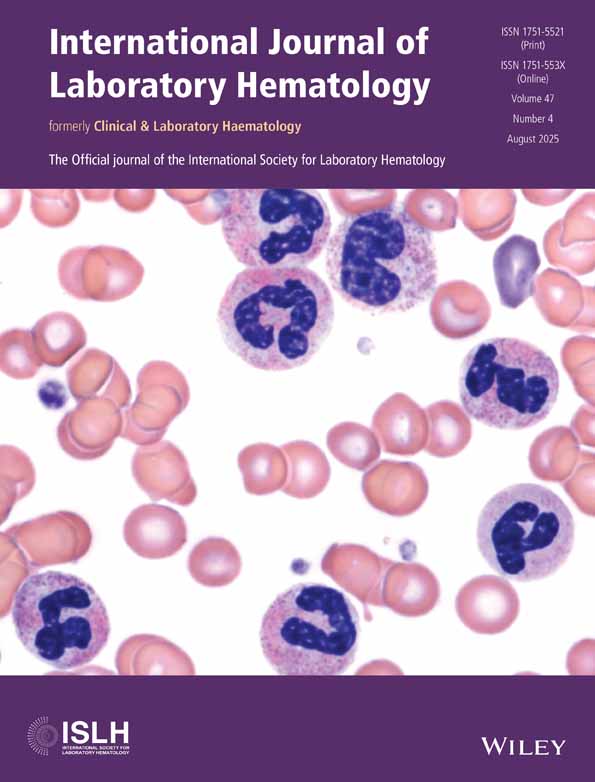High Expression of SPAG6 Acts as a Pro-Tumor Factor and Associated With Poor Prognosis in Acute Myeloid Leukemia
Funding: This study was supported by the National Natural Sciences Foundation of China (grant no: 82070130).
Jie Luo and Haiqiu Zhao contributed equally to this study.
ABSTRACT
Background
Acute myeloid leukemia (AML) is a malignant hematological disease that has shown an increased prevalence in recent years. Despite advancements in treatment, significant limitations remain. Therefore, more information about AML mechanisms is essential to improve therapeutic strategies.
Methods
RT-qPCR, IHC, and western blot were used to analyze SPAG6 expression levels. The association between SPAG6 expression and patient survival was evaluated using LeukemiaDB, GEPIA, and Bloodspot databases. Cell viability was detected by CCK-8 assay. Flow cytometry was applied to measure cell apoptosis and cell cycle.
Results
Database analysis revealed elevated SPAG6 expression in AML. Subsequent RT-qPCR confirmed high SPAG6 expression in AML, MDS, MPN, and ALL samples. Clinical data analysis demonstrated a positive correlation between SPAG6 expression and risk stratification in AML patients. Notably, it was found that the overall survival time of AML patients with high SPAG6 expression was shorter than that of patients with low SPAG6 expression. Moreover, SPAG6 knockdown in the AML cell line HL60 promoted apoptosis and arrested the cell cycle in the G1 phase.
Conclusion
Therefore, we believe that SPAG6 may be a pro-tumor factor in AML.
Open Research
Data Availability Statement
The data that support the findings of this study are available from the corresponding author upon reasonable request.




